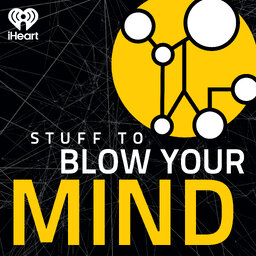Smart Talks with IBM: Unlocking Data Strategy: Data Literacy for Better Business
Having a good data strategy can streamline the way a company does business. In this episode of Smart Talks with IBM, Malcolm Gladwell takes on this topic with Ronald Young Jr., host of Solvable, and guest Nicholas Renotte, Data Science and AI Technical Specialist at IBM. They discuss how data literacy can help make a business more efficient, the fundamentals of data management, and why data is step one to AI solutions. A study quoted by Nicholas and referenced in this episode can be found here. Some of Nicholas’ guidance on machine learning can be found here.
This is a paid advertisement from IBM.
In 1 playlist(s)
Stuff To Blow Your Mind
Deep in the back of your mind, you’ve always had the feeling that there’s something strange about re…Social links
Follow podcast
Recent clips

Crab Bag, Part 3: The Crab is a Lonely Hunter
55:55

Weirdhouse Cinema Rewind: La Loba (1965)
1:30:07

From the Vault: Mystery Cults, Part 4
1:00:23
 Stuff To Blow Your Mind
Stuff To Blow Your Mind